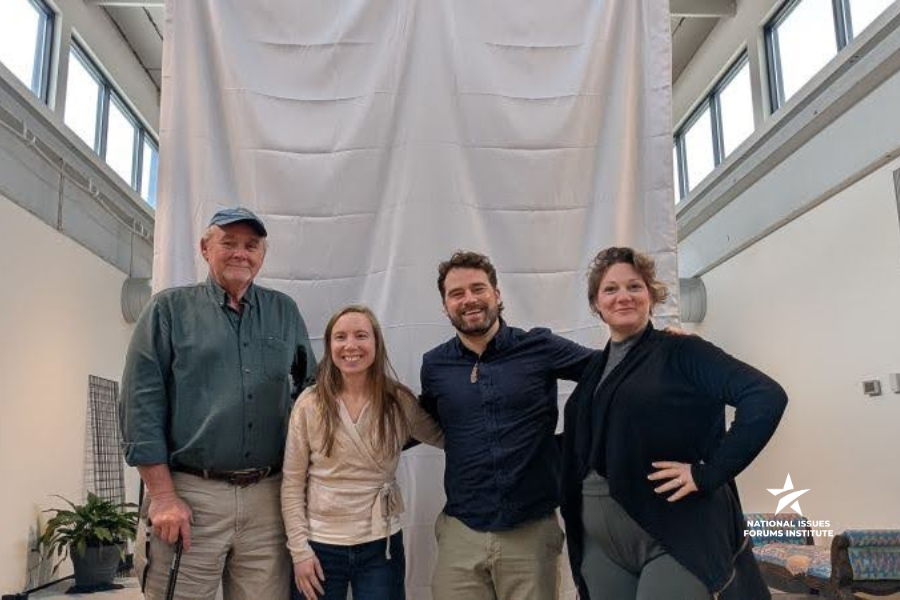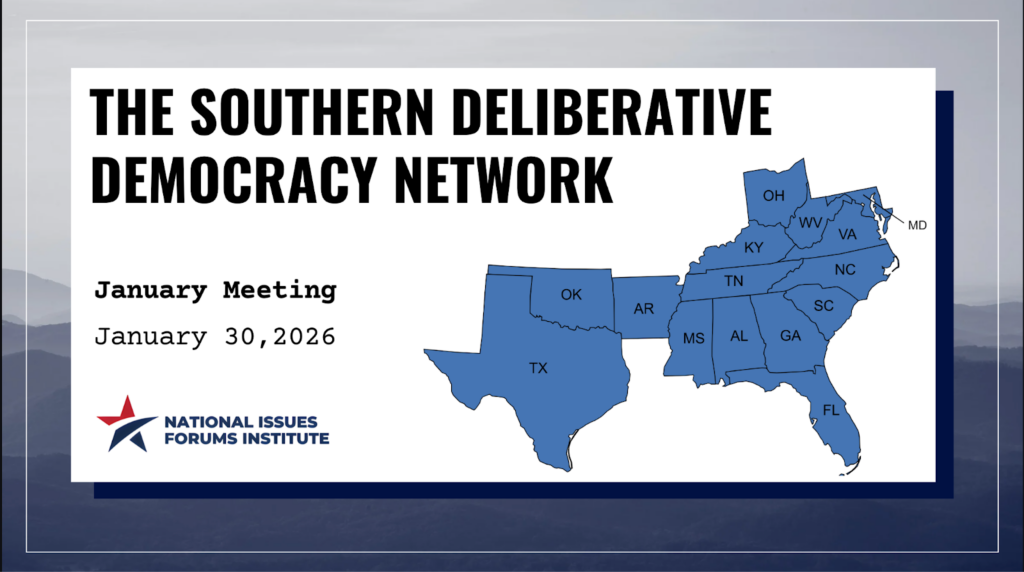NIFI Announces Herman Lehman and Kenny Andejeski as Co-Facilitators of the Southern Deliberative Democracy Network

The National Issues Forums Institute (NIFI) is proud to announce the selection of Herman Lehman and Kenny Andejeski as co-facilitators of the Southern Deliberative Democracy Network (SDDN).
SDDN is a growing regional network designed to connect, support, and strengthen practitioners across the South who are advancing deliberative democracy in their communities. At a time when many civic challenges are deeply local—and shaped by distinct regional histories, cultures, and relationships—SDDN creates space for practitioners to learn from one another, share strategies, and build collective capacity rooted in the lived realities of Southern communities.
Leadership Rooted in Place & Practice
Herman and Kenny bring deep experience, complementary strengths, and a shared commitment to community-centered civic work.
Herman Lehman, a coach with Keys to the City and a former municipal official, brings extensive experience supporting local leaders, community organizations, and residents as they work across differences to strengthen civic life. His work emphasizes trust-building, place-based leadership, and helping communities navigate complex challenges.
Kenny Andejeski is the founder of why [here] matters, a narrative, engagement and strategy firm that works with philanthropic, nonprofit, network and community organizations to tell better stories and build community towards better civic health outcomes. In a recent reflection on the network, Kenny described SDDN as a space for practitioners to be “less alone” in the work—an honest acknowledgment of how challenging, relational, and sustaining deliberative practice can be, especially in polarized environments. Kenny’s colleague Elle Quesenberry will also be an integral part of the team providing logistical support for the SDDN network.
Together, Herman and Kenny embody the spirit of SDDN: relational, reflective, and deeply committed to helping communities move from talk to action.
Why Regional Networks Matter to NIFI
For NIFI, SDDN reflects a core belief: deliberative democracy is strongest when it is led locally and supported regionally and nationally.
Across the South, practitioners are facilitating conversations on issues that are complex, value-laden, and deeply tied to place. Regional networks like SDDN help ensure that this work is not siloed or isolated, but instead connected to peers, shared learning, and regional infrastructure that can help it grow and endure.
NIFI is committed to supporting these regional ecosystems by:
- Connecting practitioners to deliberative tools, frameworks, and resources
- Creating spaces for shared learning and peer support
- Elevating local and regional leadership and lived expertise
- Strengthening pathways from dialogue to collective action
SDDN is one important expression of that commitment—and we are excited to see how it continues to evolve under Herman and Kenny’s leadership.
Get Involved or Learn More
If you are doing deliberative democracy work in the South—or are interested in starting—SDDN is a space designed for you. Send Herman (herman@keystothecity.co) and Kenny (kenny@whyherematters.com) an email if you’d like to connect with SDDN.
And if you’re curious about how NIFI can support deliberative efforts in other regions of the country, we want to hear from you. Please reach out to Dawn Harfmann, NIFI Program Coordinator, to explore how NIFI can support deliberative democracy work in your region.
Together, we can continue building the relationships, skills, and civic infrastructure communities need to navigate complexity and act for the public good.


